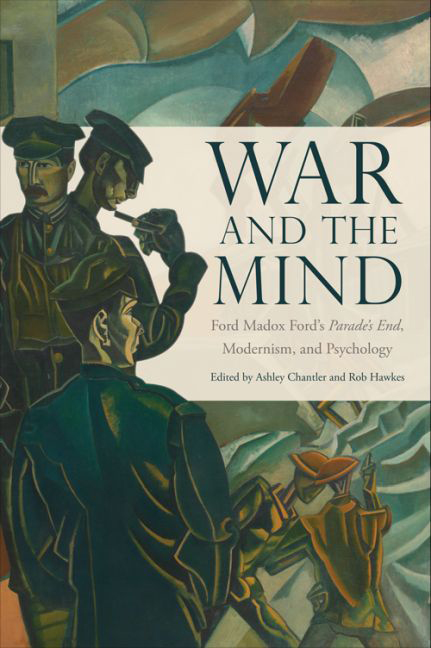Book contents
- Frontmatter
- Contents
- Acknowledgements
- Introduction
- 1 ‘Sex ferocity’ and ‘the sadic lusts of certain novelists’: Sexuality, Sadomasochism, and Suppression in Parade's End
- 2 Freud Madox Ford: Impressionism, Psychoanalytic Trauma Theory, and Ford's Wartime Writing
- 3 Empathy, Trauma, and the Space of War in Parade's End
- 4 Fellow Feeling in Ford's Last Post: Modernist Empathy and the Eighteenth-Century Man
- 5 The Self-Analysis of Christopher Tietjens
- 6 Composing the War and the Mind; Composing Parade's End
- 7 The Work of Sleep: Insomnia and Discipline in Ford and Sassoon
- 8 Representing Shell Shock: A Return to Ford and Rebecca West
- 9 ‘I hate soldiering’: Ford, May Sinclair, and War Heroism
- 10 Peace of Mind in Parade's End
- Notes on Contributors
- Bibliography
- Index
10 - Peace of Mind in Parade's End
Published online by Cambridge University Press: 15 September 2017
- Frontmatter
- Contents
- Acknowledgements
- Introduction
- 1 ‘Sex ferocity’ and ‘the sadic lusts of certain novelists’: Sexuality, Sadomasochism, and Suppression in Parade's End
- 2 Freud Madox Ford: Impressionism, Psychoanalytic Trauma Theory, and Ford's Wartime Writing
- 3 Empathy, Trauma, and the Space of War in Parade's End
- 4 Fellow Feeling in Ford's Last Post: Modernist Empathy and the Eighteenth-Century Man
- 5 The Self-Analysis of Christopher Tietjens
- 6 Composing the War and the Mind; Composing Parade's End
- 7 The Work of Sleep: Insomnia and Discipline in Ford and Sassoon
- 8 Representing Shell Shock: A Return to Ford and Rebecca West
- 9 ‘I hate soldiering’: Ford, May Sinclair, and War Heroism
- 10 Peace of Mind in Parade's End
- Notes on Contributors
- Bibliography
- Index
Summary
In the late summer of 1924 – between the publication of Some Do Not … and the writing of No More Parades – Ford Madox Ford observed:
A great many novelists have treated of the late war in terms solely of the war: in terms of pip-squeaks, trench-coats, wire-aprons, shells, mud, dust, and sending the bayonet home with a grunt. For that reason interest in the late war is said to have died. But, had you taken part actually in those hostilities, you would know how infinitely little part the actual fighting itself took in your mentality.
In the series of novels that would become Parade's End, Ford examines not so much the ‘actual fighting’ as the psychological effects of war on the mind, and explores the various strategies developed by men suffering stress to preserve their sanity and self-control under wartime conditions. In this context, Christopher Tietjens stands out as a prime example of the Good Soldier: he is an effective and capable officer who not only does his duty but manages without fail to help his fellow soldiers even when they are handicapped by alcohol, prejudice or fits of madness. Tietjens is severely tested by the trauma of war and the threat of insanity, yet he emerges from the test with his values strengthened and clarified. What is it in Tietjens’ character or constitution that enables him to withstand the hell of Armageddon?
Ford was literally ‘shell shocked’ during the Battle of the Somme, when he was, as he described the moment to his daughter Katherine: ‘blown up by a 4.2 & shaken into a nervous breakdown which has made me unbearable to myself & all my kind’. He suffered a concussion, loosened teeth, and a severe but temporary loss of memory; but in his various accounts of this near-death experience, like Tietjens, he was always careful to distinguish its physical from its psychological effects, noting, for example: ‘I have been lifted off my feet and dropped two yards away by the explosion of a shell and felt complete assurance of immunity.’
- Type
- Chapter
- Information
- War and the MindFord Madox Ford's Parade's End, Modernism, and Psychology, pp. 159 - 170Publisher: Edinburgh University PressPrint publication year: 2015



